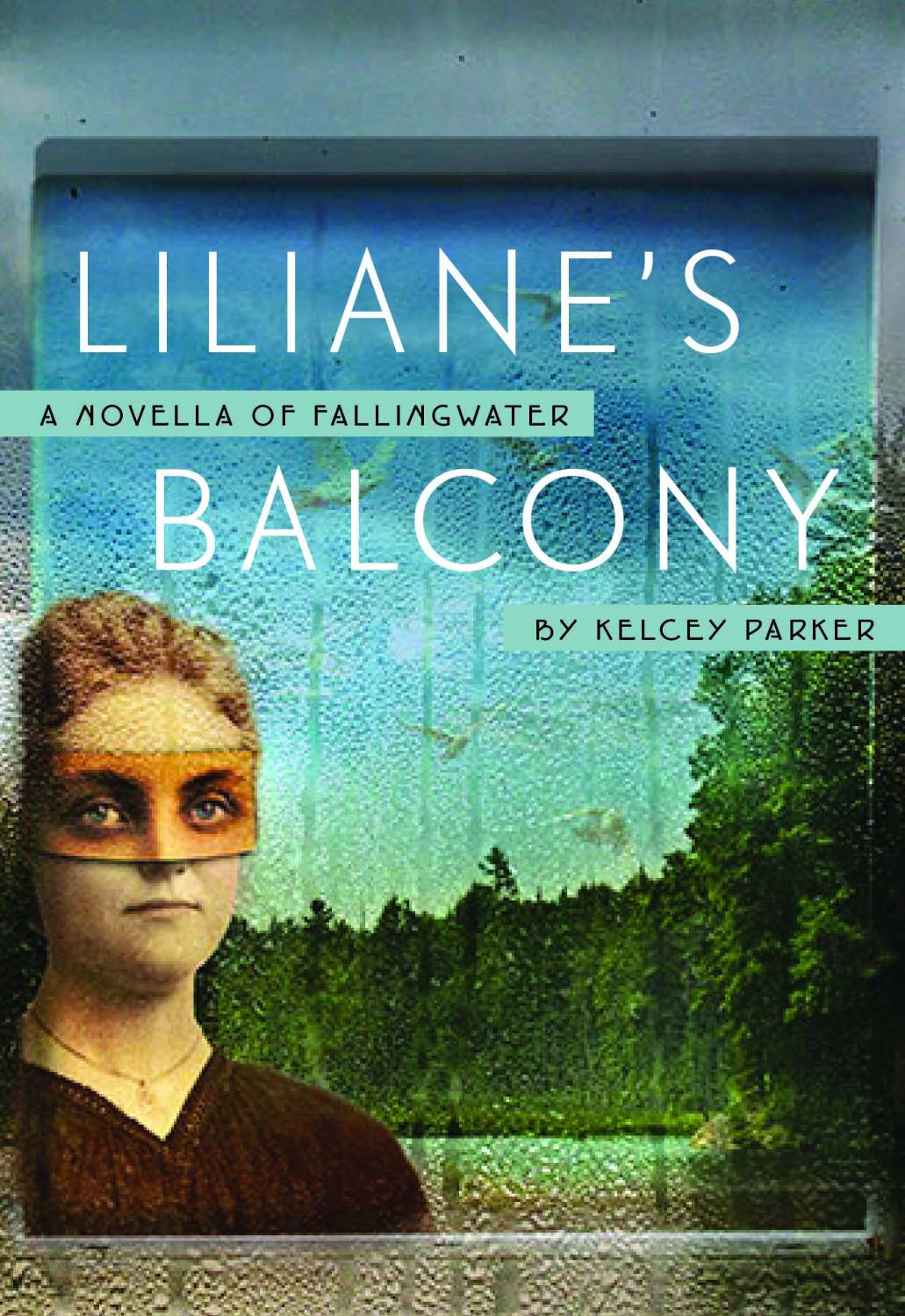Music and writing have a lot in common. Songs, of course, are narratives. Some musical narratives have lyrics, some don’t. . . . Maybe what I love about language is the cadences and rhythms and susurrations – the music of it.
Darrin Doyle’s first novel, Revenge of the Teacher’s Pet: A Love Story (LSU Press), was described by the NY Times Book Review as “an original tale that earns its readers’ trust, and breaks their hearts a little in the process.” Publisher’s Weekly called his second novel The Girl Who Ate Kalamazoo (St. Martin’s Press) “relentlessly inventive.” Darrin’s stories have appeared in Puerto del Sol, The Long Story, Alaska Quarterly Review, Laurel Review, Harpur Palate and other journals. He lives in Mount Pleasant, Michigan and teaches at Central Michigan University.
Visit his web page: www.darrindoyle.com
 Read more by and about Darrin:
Read more by and about Darrin:
Novel: The Girl Who Ate Kalamazoo
Publisher’s Page for GWAK
Novel: Revenge of the Teacher’s Pet
Publisher’s Page for Revenge
Short story: “Foot”
Short Story: “Hand”
How Darrin Doyle Became a Writer
This is the latest installment in the new How to Become a Writer interview series, which will post here at Ph.D. in Creative Writing every other Sunday until I run out of writers to interview, or until they stop saying yes. Each writer answers the same 5 questions. Thanks to Darrin for saying yes!
1. Why did you want to become a writer?
The short answer is that I’ve always loved words. The long answer has something to do with an artistic impulse that manifested when I was young. I played the drums and guitar as a teenager, had a sort of awakening at age 15, stopped playing sports and began channeling my energy into The Beatles, Pink Floyd, The Dead Kennedys, Camper Van Beethoven, The Flaming Lips, and lots of other bands. I started writing originals with a friend of mine, and we formed a band with a couple other guys in high school called 42 Gehenna. We wrote songs like “Big Bad Bart” and “The Twisted World of Malcolm Potts.” Of course we stunk, but we managed to beat out five other bands in the Caledonia High School Battle of the Bands in 1987. Yes!

On King Tammy: "...keeping five guys working together in close quarters, happily functioning as a group while doing constant rehearsing and traveling and eating crappy gas station food and living in bars…it’s fun, but it’s not easy." (Long-haired Darrin on left.)
Anyway, the band – which changed into a group called King Tammy – continued throughout “the college years” all the way to 1996. We had a decent amount of success, recorded a couple albums (which, if anyone cares, can be found here: http://www.leonstemple.com/kingtammy.html) played lots of shows, opened for some bands that ended up getting famous (Everclear, 311, Urge Overkill). Ultimately, though, King Tammy broke up. The indie band lifestyle is difficult to sustain for a long period. I’m not even speaking about commercial success, which is ridiculously hard to attain. I’m referring to keeping five guys working together in close quarters, happily functioning as a group while doing constant rehearsing and traveling and eating crappy gas station food and living in bars…it’s fun, but it’s not easy. Writing, by contrast, only requires me and a writing implement. When King Tammy broke up, I found the writing life to be a nice change of pace, although I do miss the camaraderie of playing in a band.
But music and writing have a lot in common. Songs, of course, are narratives. Some musical narratives have lyrics, some don’t. I was always better at writing melodies and chord progressions than lyrics. I’m not sure why, and this flies in the face of my claim that “I’ve always loved words.” Or maybe it doesn’t. Maybe what I love about language is the cadences and rhythms and susurrations – the music of it. I still continue to play, too, so it isn’t as if I stopped being a musician and replaced it with writing. It’s just that writing is now my livelihood. In fact, you can find some of the music I currently do, as well as probably the finest band photo ever taken, right here: http://www.myspace.com/loopdloops
 2. How did you go about becoming a writer?
2. How did you go about becoming a writer?
I worked my ass off. I simply wrote every day of the year, for at least two hours at a time. I read voraciously. I’d been a big reader my whole life, long before I ever had any aspirations to become an author, but once I began concentrating on the craft of fiction I started to pay more attention to style, narrative arc, character development, and those sorts of things in the material I was reading.
I especially tried to absorb the mojo of writers like Flannery O’Connor, Denis Johnson, Paul Auster, Nathaneal West, Lorrie Moore, Grace Paley, Franz Kafka, F. Scott Fitzgerald, and Shirley Jackson, to name a few. I would jot down lines from their stories in a notebook. Sometimes it was lines that sounded pretty or memorable. Sometimes I searched for specific things, such as the way these authors did physical descriptions – of faces, eyes, noses, mouths, hair, gestures, mannerisms, landscapes – as well as psychological descriptions of moods and motivations. It’s very useful as a beginning writer to closely study exactly how – with what words, precisely – authors achieve certain effects, and then to imitate them.
The other component for becoming a writer was to diligently submit stories for publication. I received a boatload of rejections before I had any sort of success, but I kept doing it and doing it and doing it, and eventually it paid off. I used to collect the rejections and stuff them in a manila envelope, but before long the damn thing was full. I decided it was lame to keep my rejections and dwell on them, so I unceremoniously threw them in the garbage.
I mark the beginning of my “serious” writing at 1996, although I’d been writing stories since I was pretty young. The most important moments along the way had to do with schooling. Going to pursue my MFA was the best decision I’ve ever made, because until that point I had no idea that a person could make a career out of writing and teaching (I know, I was clueless). The MFA was a terrific learning experience – both humbling and encouraging, if that makes sense. I learned I was both better and worse than what I’d previously thought.
 3. Who helped you along the way, and how?
3. Who helped you along the way, and how?
So many people have helped that it’s difficult to name them all. My wife has probably been the most crucial person to my writing career. She and I kind of went all-in when we gave up our jobs in Kalamazoo and moved to Cincinnati so I could earn my PhD. We went from earning two decent incomes to earning below-poverty wages from my assistantship. Then we proceeded to have two children, and so I was really feeling some intense pressure to make something out of myself – make something out of this art that I had decided was going to be my livelihood. To make a long story short, my wife was my rock during this time. She never lost faith even when I wanted to chuck it all and find a different line of work. I would’ve lost my mind without her.
Many teachers had significant impacts on my abilities and professional development. Jaimy Gordon, Stuart Dybek, Elizabeth McCracken, Michael Griffith, and Brock Clarke were incredibly important and skilled fiction teachers, and they all gave generously of their time and energy. A few poetry teachers such as William Olsen, Nancy Eimers, Mark Richardson, and Herb Scott were also influential. And of course my peers in graduate school provided much-needed camaraderie and inspiration. In some ways, these peers were the most important, since they were the backbone of the community of artists that I had been craving.
 4. Can you tell me about a writer or artist whose biography inspires you?
4. Can you tell me about a writer or artist whose biography inspires you?
I honestly don’t pay attention to biographies – of anybody, but especially of writers. I don’t know why, but peoples’ life stories don’t interest me. Maybe it’s my own discomfort at the thought of people peering into my personal life (like this interview!). But if your question also includes the biographies of writers I’ve known personally, then I suppose when I was struggling to get my first book published I took a good deal of solace from hearing about the long, bumpy roads numerous writers traveled when trying to get their own first books published. My mentor Michael Griffith, for instance, spent the better part of a decade revising his first novel, trying to find a home for it.
There are thousands of stories just like his decorating the literary landscape. I’ll admit that I actively searched for anecdotes of struggle and heartbreak as a way to make my own struggles and heartbreaks more palatable. The truth is that the writing life involves far, far more rejection than acceptance, so I think it’s very important to find a way of dealing with it, even if that method involves the “misery loves company” adage.
 5. What do you wish you’d known before you got into writing?
5. What do you wish you’d known before you got into writing?
I wish I’d known what a grind it is. I had this notion that the writing life was some kind of exotic, cerebral, romantic undertaking that would always be stimulating and beautiful and entertaining. I’ve come to agree with what Gloria Steinem said: “I don’t like to write. I like to have written.” Don’t get me wrong. I truly love it and have an absolute need, a compulsion, to put words on the page; but it never gets any easier.
Writing a novel (and even a short story) is like constructing a house without a plan, without even knowing what materials you’re using, or how big it’s going to be, or even where the damn thing is going up. In the woods? On the side of a mountain? In a city? In the country? Who knows! Just stick a board here, pound a nail there, put a bathtub in this room. Day in, day out. After three months you might, with any luck, start to see a shape to your house, but you have to keep the option open of demolishing large portions of what you’ve build at any given moment. And you’re constantly digging out entire tiled floors that you’ve already caulked, removing nails that you thought were fine but on second look appear to have been hammered sloppily. It’s laborious. It’s difficult. It’s unromantic.
I think Nathaniel Hawthorne is credited with saying, “Easy reading is damn hard writing.” The moments of pure satisfaction are few and far between, but when they come – those “momentary stays against confusion” that Frost mentions – they make it all worthwhile.











I loved these questions; they were so fun to answer.